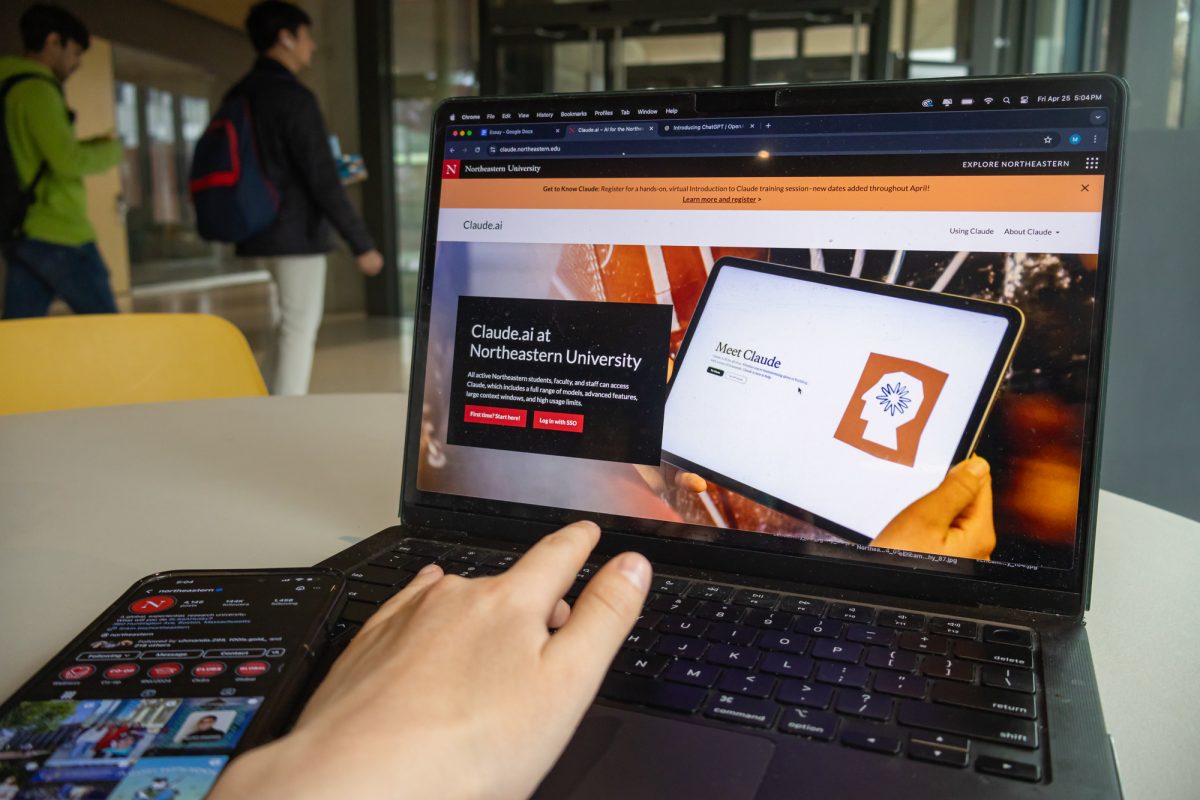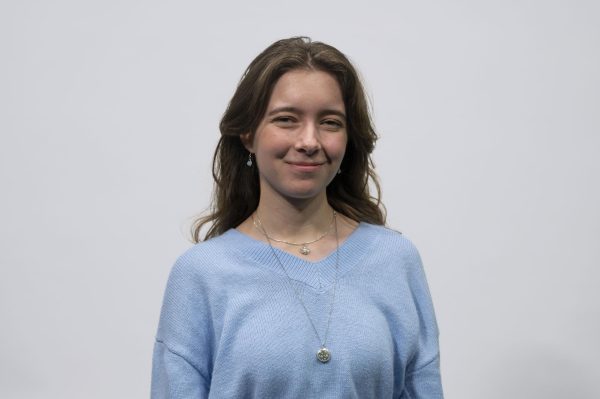Is a university a certain place in a certain location or a brand that extends beyond its pre-existing borders? Northeastern believes it’s the latter.
At a time when artificial intelligence has permeated every aspect of our society — and as it threatens to upend our job market — it’s good to hear that Northeastern is embracing, rather than ignoring, this growing phenomenon. Our school is at the forefront of a new type of university, extending the definition of what the term “university” actually means.
Northeastern’s expansive vision has brought the university to AI’s front door through a new partnership with Anthropic, a leading AI lab. The partnership seems more of a story that would come out of Silicon Valley than out of Boston. It plans to “co-design and develop a roadmap for the future of higher education,” building AI frameworks and tools for students and researchers alike. Shortly following the announcement, Northeastern held multiple virtual workshops dedicated to teaching participants how to build a custom chatbot using Anthropic’s Claude software.
A university that prides itself on positive employment outcomes cannot ignore AI and its impact on the employment landscape. When you enter Northeastern on Orientation Day, it becomes immediately clear that the university takes pride in its successful co-op program, which is designed to give students professional skills and help them find viable career paths.
But now, careers and AI skills go hand in hand. A recent report from OpenAI found that three in four college-aged users want AI training to further their careers. The report also found that employers “increasingly prefer candidates with AI skills.” It’s not just “employers” as a broad term — CEOs of some of the most notable tech companies have required being AI-proficient to join their company. Shopify CEO Tobias Lütke recently published an internal memo where he wrote that “reflexive AI usage is now a baseline expectation at Shopify.” Shortly thereafter, Duolingo CEO Luis von Ahn sent an internal email explaining that the company is now “AI-First.” Ahn emphasized that “AI use will be part of what we look for in hiring.”
Given our university’s pride in employment outcomes, it makes sense for Northeastern to take a proactive stance on AI as we prepare for a changing career landscape. A focus on responsible use of AI provides an environment where students can interact with Claude and make use of its education platform, instead of students self-training and utilizing it to cheat in their classes.
Now, Northeastern’s partnership with Anthropic is likely to be met cautiously by professors, many of whom are now beginning their classes with a syllabus outlining their AI policies. While a few of them have actively encouraged the use of AI chatbots in their courses, some professors are not nearly as enthusiastic. Some still view AI as a form of cheating. In one class, my professor’s syllabus made it abundantly clear that using ChatGPT would be treated as a form of plagiarism.
But given AI’s disruption to education, professors who are concerned with the misuse of AI should welcome the pioneers that are emphasizing the need for students to use the tool more responsibly. That is exactly the outcome the Anthropic and Northeastern collaboration aims to achieve, especially with Claude for Education.
In the Claude for Education announcement, Anthropic emphasised that it intends to “give academic institutions secure, reliable AI access for their entire community.” With such a novel tool, faculty and professors can custom design rubrics for specific learning outcomes, have an assistant to provide more tailored feedback on student essays and more. The possibilities for professors are liberating. Claude for Education can help professors save time, increasing the quality of their instruction by allowing them to customize material for each student.
Not only does Claude AI benefit professors, but its “Learning Mode” feature also ensures that AI does not replace students’ critical thought. This tool develops students’ critical thinking capabilities instead of just solely providing them with answers. Using the tool saves time, too: Rather than students spending time making study guides or flash cards, Learning Mode can do it for them. Now, the student can get straight to practicing and maximizing their time.
In a fireside chat in Seoul, a panelist asked Sam Altman, the CEO of OpenAI, what students will need in order to survive this coming AI age. Altman said that, “It’s not a question of survival…to thrive in [the AI] world, I think the skills that matter are deep familiarity with the tools and staying abreast of changes.”
At a time when the future is unpredictable, Northeastern is putting forth a promising vision: that AI systems are not just an important technology but a skill that should be developed and honed by students and professors alike.
Shiv Wani is a second-year computer science major. He can be reached at sadhwani.sh@northeastern.edu.
If you would like to submit a letter to the editor in response to this piece, email comments@huntnewsnu.com with your idea.










